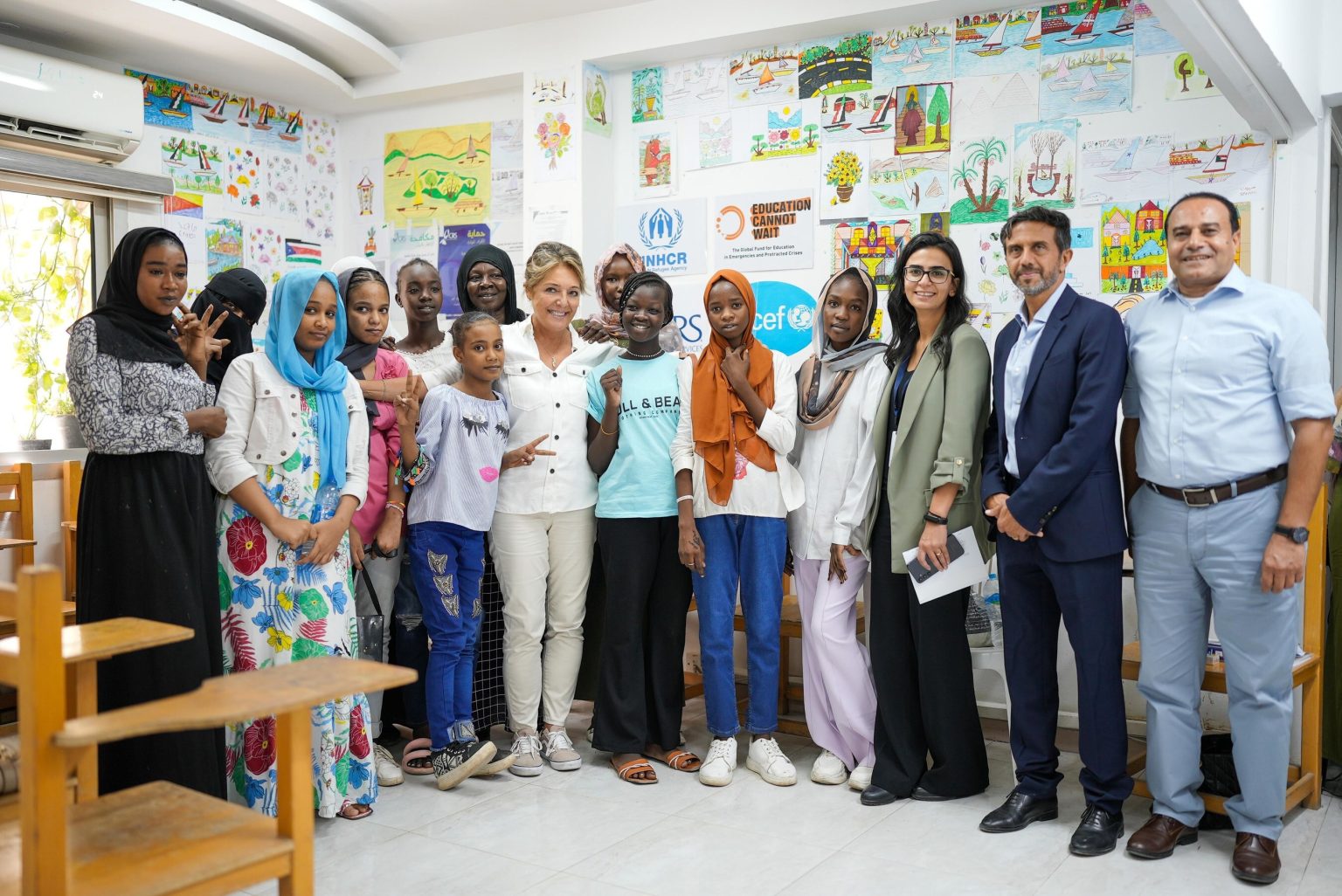A growing humanitarian crisis is unfolding in Egypt, as the country grapples with an overwhelming influx of refugees fleeing the brutal conflict in Sudan. Since the outbreak of violence in April 2023, the number of registered Sudanese refugees in Egypt has surged nearly sevenfold, with women and children making up the majority of the displaced population. As of now, over 748,000 refugees and asylum-seekers are registered with the United Nations High Commissioner for Refugees (UNHCR) in Egypt, and the numbers are expected to continue rising.
The rapid increase in refugee numbers has placed immense strain on the resources of the Egyptian government, UN agencies, and other international partners. Providing safe and protective learning environments for refugee and host community children has become a critical challenge, with resources running perilously thin.
The 2024 Sudan Regional Refugee Response Plan, a comprehensive strategy to address the escalating crisis, calls for $109 million to meet the educational needs of refugee children across the region. However, to date, only 20% of this funding requirement has been secured, with Egypt receiving a mere $4.3 million – 40% of the amount required to address its immediate needs.
In a high-level UN mission to Egypt this week, representatives from Education Cannot Wait (ECW), UNHCR and UNICEF emphasised the urgent need for increased international support to address the funding shortfall. The mission underscored the critical importance of providing educational opportunities to children forcibly displaced by the conflict, both within Sudan and in neighbouring countries like Egypt.
Yasmine Sherif, Executive Director of Education Cannot Wait, highlighted the dire situation facing Sudanese children in Egypt. “Families fleeing the brutal conflict in Sudan have endured unspeakable violence and seen their lives torn apart. For these uprooted girls and boys, education is nothing less than a lifeline. It offers protection, a sense of normalcy amid the chaos, and the resources they need to heal and thrive,” she said. Sherif urged international donors to increase their support, warning that the future of the entire region is at stake if the educational needs of refugee children are not met.
The Egyptian government has made notable efforts to provide refugees with access to education services, but the challenges are mounting. With around 9,000 children arriving each month, a recent assessment by UNICEF and the World Bank found that approximately 54% of newly arrived children are currently out of school. The situation calls for immediate action to prevent these children from becoming part of a lost generation.
Dr. Hanan Hamdan, UNHCR Representative to the Government of Egypt and to the League of Arab States, stressed the importance of international support in helping Egypt manage the crisis. “Egypt has shown remarkable resilience and generosity, but the increasing number of displaced individuals requires enhanced international assistance. By strengthening Egypt’s capacity to support refugees, we can ensure that more children have access to education and, eventually, a brighter future,” she said.
UNICEF, under the leadership of the Egyptian government and in cooperation with UN agencies and development partners, is working to create inclusive learning environments and strengthen resilient education systems. Jeremy Hopkins, UNICEF Representative in Egypt, reaffirmed the organisation’s commitment to ensuring that conflict-affected Sudanese children have the opportunity to resume their education. He called on the international community to stand in solidarity with these children and provide the necessary resources to support both Egyptian and non-Egyptian children in realising their right to education.
During the mission, the ECW delegation met with key partners, including donors, UN agencies, and NGOs, to assess the scope of the needs and the ongoing education response. ECW has already allocated $2 million in emergency grants to support over 20,000 Sudanese refugees in Egypt. However, with the crisis showing no signs of abating, the call for increased international support has never been more urgent.

